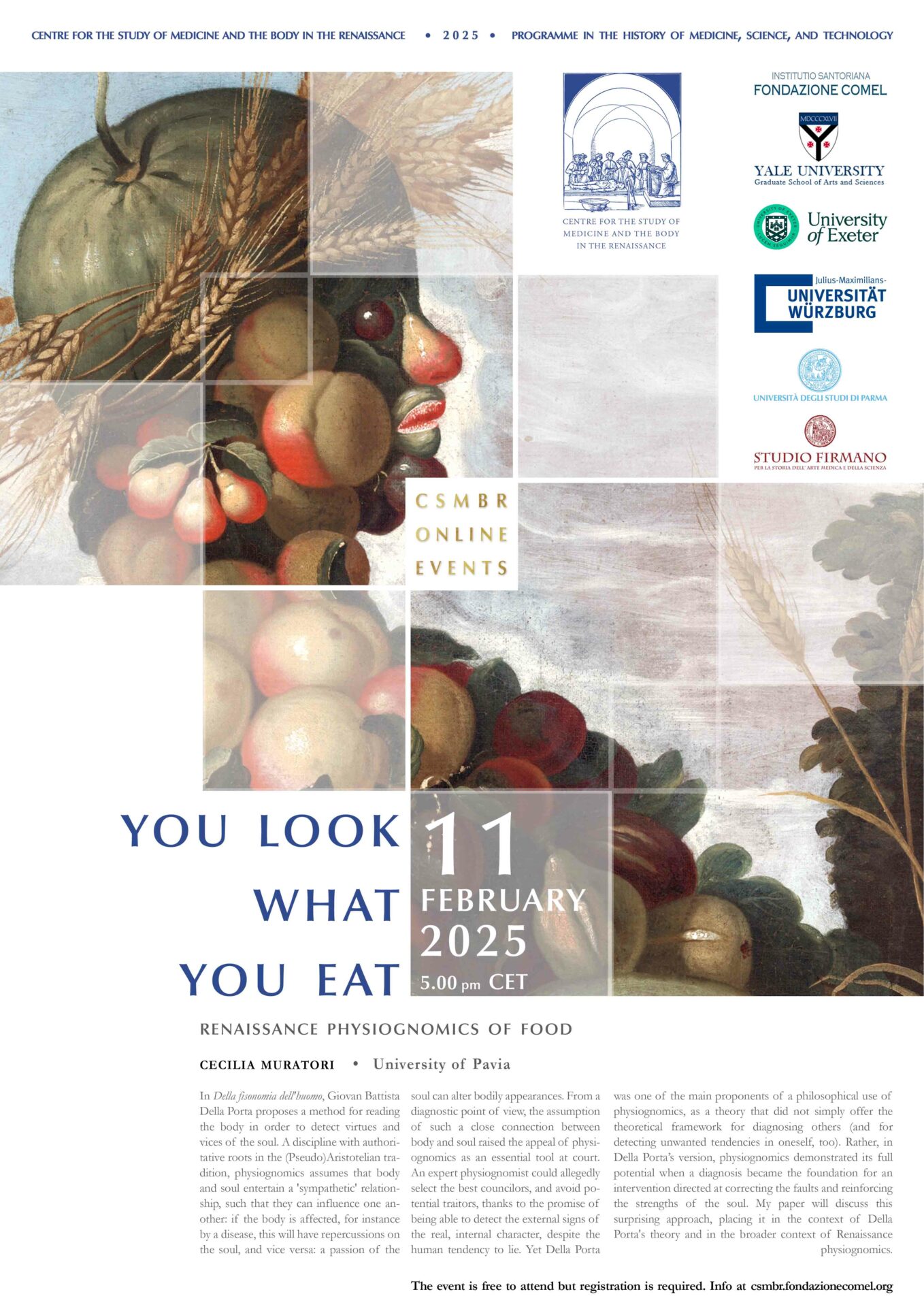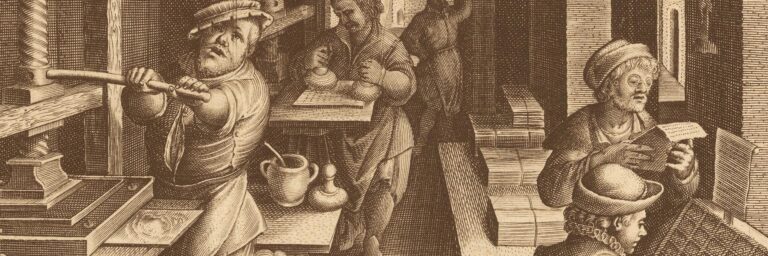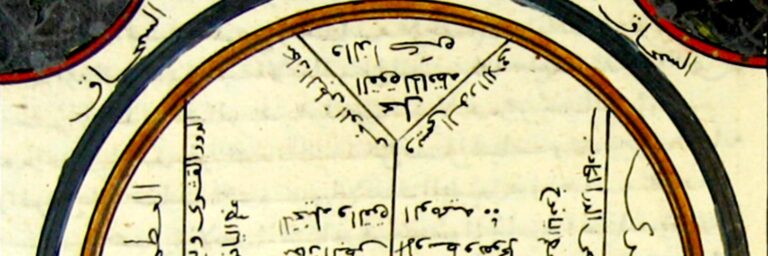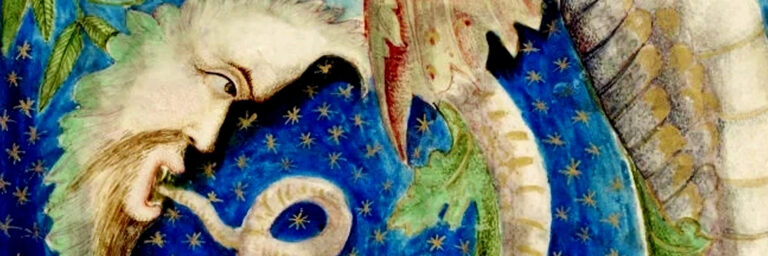Renaissance Physiognomics of Food
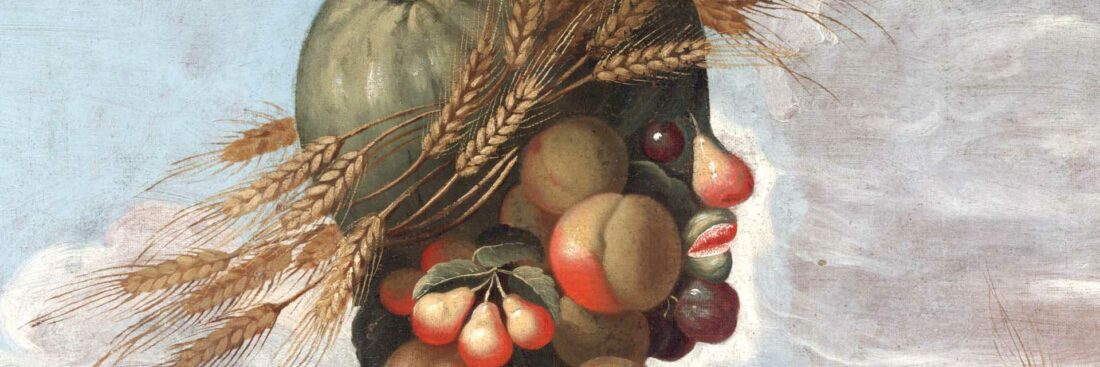
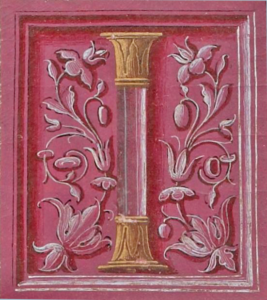
You Look What You Eat
Renaissance Physiognomics of Food
Cecilia Muratori
11 February 2025 – 5 PM (CET)
In Della fisonomia dell’huomo, Giovan Battista Della Porta (1535-1615) proposes a method for reading the body in order to detect virtues and vices of the soul. A discipline with authoritative roots in the (Pseudo)Aristotelian tradition, physiognomics assumes that body and soul entertain a ‘sympathetic’ relationship, such that they can influence one another: if the body is affected, for instance by a disease, this will have repercussions on the soul, and vice versa: a passion of the soul can alter bodily appearances.
From a diagnostic point of view, the assumption of such a close connection between body and soul raised the appeal of physiognomics as an essential tool at court.
An expert physiognomist could allegedly select the best councillors, and avoid potential traitors, thanks to the promise of being able to detect the external signs of the real, internal character, despite the human tendency to lie. Yet Della Porta was one of the main proponents of a philosophical use of physiognomics, as a theory that did not simply offer the theoretical framework for diagnosing others (and for detecting unwanted tendencies in oneself, too).
Rather, in Della Porta’s version, physiognomics demonstrated its full potential when a diagnosis became the foundation for an intervention directed at correcting the faults and reinforcing the strengths of the soul.
This implies that not only is it possible to read the visible features of the body in order to gain access to the invisible characteristics of the soul, but that an expert physiognomist could also exploit the connection, or sympathization, between body and soul so as to intervene on the body in order to trigger a change at the level of the soul.
It is in this context that Della Porta recommends adjusting diet in order to use the body as a channel for affecting the soul. My paper will discuss this surprising approach, placing it in the context of Della Porta’s theory and in the broader context of Renaissance physiognomics.
About the Speaker ...
Cecilia Muratori is Assistant Professor of History of Philosophy at the University of Pavia.
She was previously Marie Curie Fellow at Ca’ Foscari Università di Venezia, and held research fellowships at I Tatti – The Harvard University Center for Italian Renaissance Studies, The Warburg Institute, and LMU Munich, among others. She specialises in the role of mysticism in philosophical speculation (on which she published ‘The First German Philosopher’: The Mysticism of Jacob Böhme as Interpreted by Hegel, Springer 2016), and in the ethical implications of the human/animal distinction (see especially her book Renaissance Vegetarianism: The Philosophical Afterlives of Porphyry’s ‘On Abstinence’, Legenda 2020). She is interested in the curation of exhibitions as spaces for philosophical reflection, and worked with Staatliche Kunstsammlungen Dresden on a series of displays on Jacob Böhme.



